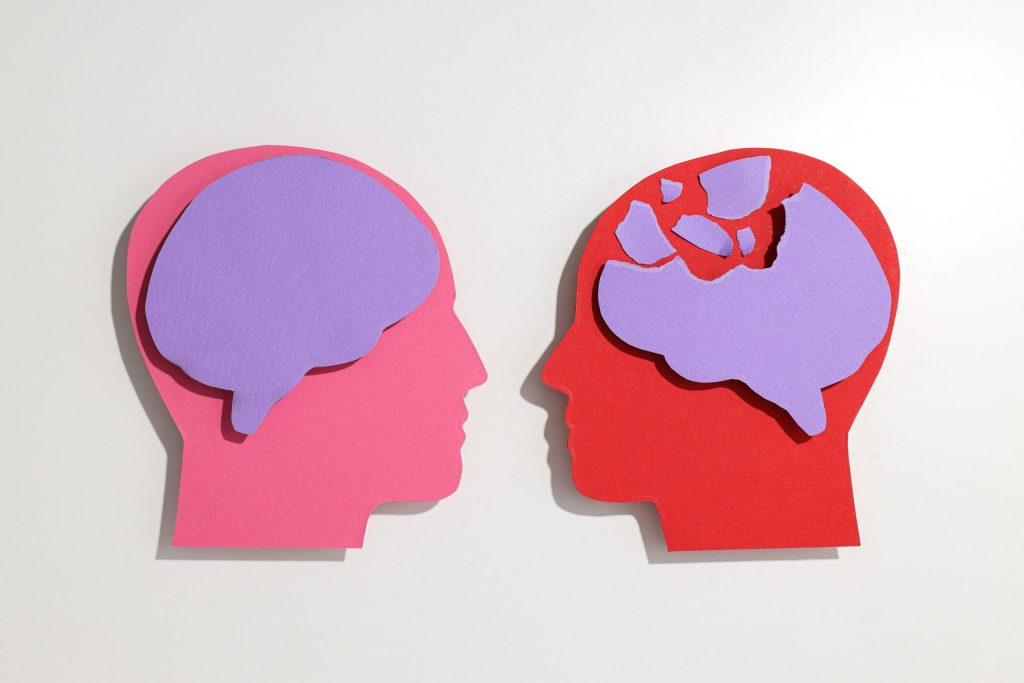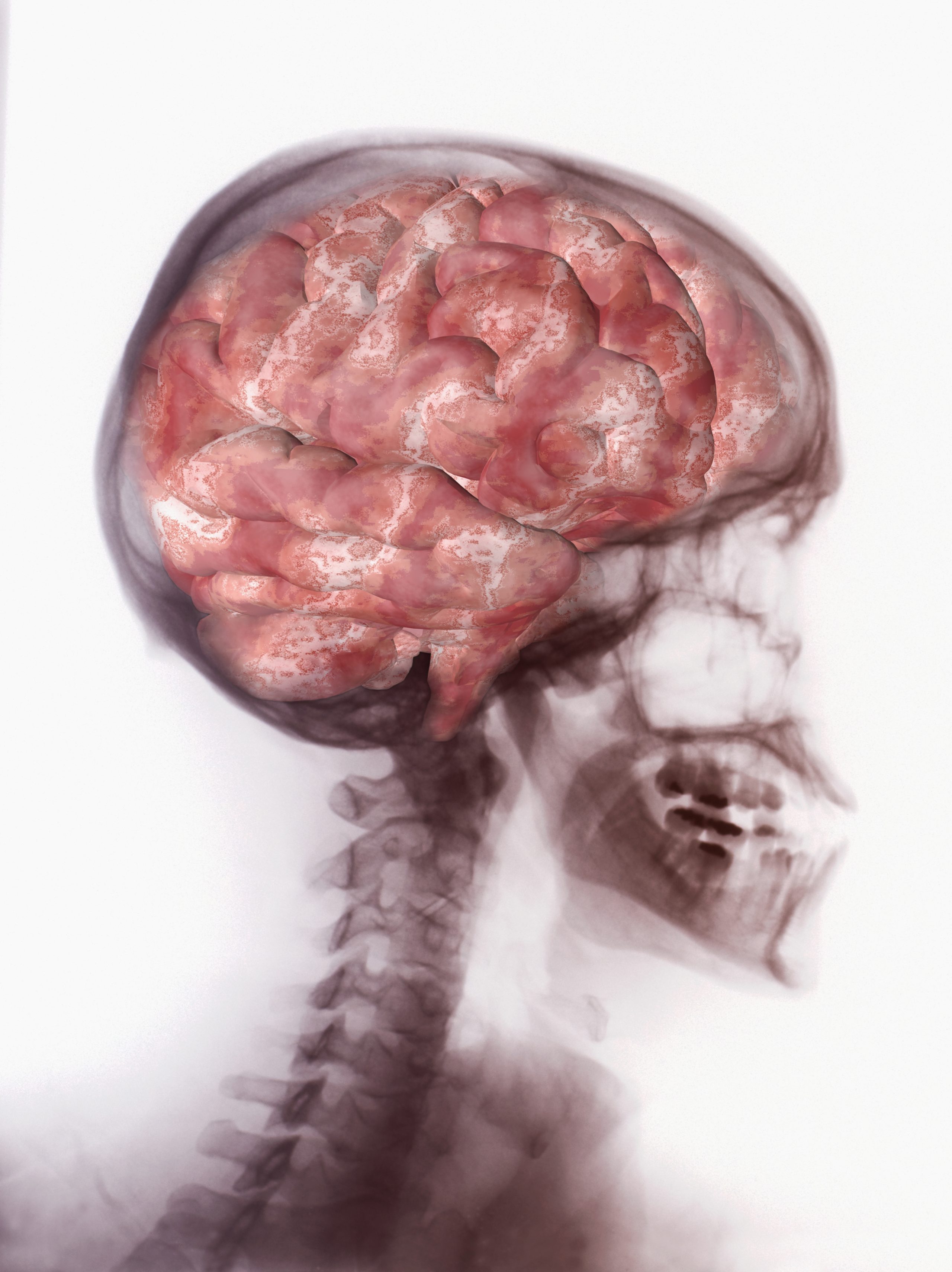Trauma isn’t just an emotional experience, it’s also a physical one, and the effects of trauma on the brain reveal how deeply it impacts overall health. When you go through a traumatic event, your brain and body react in ways designed to protect you. But when trauma is overwhelming or repeated, those protective systems can get stuck. The result is lasting changes in the way the brain functions.
At Lifeline Behavioral Health, we understand how trauma affects both the mind and body. By understanding the impact of trauma on the brain, we can more effectively guide healing through counseling, therapy, and compassionate support.
How Trauma Affects the Brain
The brain is built to respond to stress, but the effects of trauma on the brain show what happens when those systems are overwhelmed. In dangerous situations, it activates the fight-or-flight response, releasing adrenaline and stress hormones that sharpen focus and prepare the body to act. For short-term stress, this system is highly effective. But when trauma is severe, chronic, or happens in childhood, it can overwhelm the system and leave lasting effects.
Three key areas of the brain are most affected by trauma:
- Amygdala: This is the brain’s alarm system. After trauma, the amygdala can become overactive, one of the most noticeable effects of trauma on the brain, leaving you on high alert, anxious, or easily triggered.
- Hippocampus: This part of the brain manages memory and learning. Trauma can shrink the hippocampus or impair its function, leading to memory gaps, flashbacks, or difficulty distinguishing past from present danger.
- Prefrontal Cortex: Responsible for decision-making and emotional regulation, the prefrontal cortex often becomes less active after trauma. This can make it harder to control impulses, manage emotions, or think clearly under stress.
Together, these changes explain why trauma survivors may feel “stuck” in survival mode, even when no threat is present.
Trauma Brain vs. Normal Brain
A healthy brain responds to stress with flexibility, but the effects of trauma on the brain can disrupt this process and keep the alarm system active. In contrast, a trauma brain struggles to turn off the alarm system.

- In hyperarousal, a person may feel anxious, restless, irritable, or hypervigilant.
- In hypoarousal, the opposite happens: the effects of trauma on the brain may include emotional numbness, detachment, or dissociation.
This imbalance doesn’t mean the brain is broken. It means it has adapted to survive. Unfortunately, those adaptations can cause emotional trauma symptoms such as mood swings, intrusive memories, and difficulty concentrating.
Childhood Trauma and the Developing Brain
Children are especially vulnerable because the effects of trauma on the brain during development can disrupt learning, memory, and emotional growth. Repeated exposure to abuse, neglect, or household instability can disrupt normal brain growth.
- Stress hormones flood the brain, interfering with learning and memory.
- Attachment systems may be disrupted, making it harder to form safe and trusting relationships.
- Emotional regulation skills may not fully develop, leading to increased risk of anxiety, depression, or addiction later in life.
Studies show that childhood trauma significantly increases the likelihood of mental health struggles in adulthood. However, addressing the effects of trauma on the brain through early intervention and supportive care can reduce these risks and promote resilience.
Can Trauma Cause Brain Damage?
It’s natural to wonder whether trauma “damages” the brain. Research shows that the effects of trauma on the brain can include changes to the size, shape, and activity of certain brain regions, but this is not the same as permanent damage. Instead, trauma alters how different parts of the brain communicate with each other.
- The amygdala may stay overactive, constantly scanning for danger.
- The hippocampus may shrink, making it harder to process new memories.
- The prefrontal cortex may go offline under stress, reducing self-control and problem-solving.
The good news is that the brain is highly adaptable, thanks to neuroplasticity. With the right therapies, the brain can rewire itself, creating healthier pathways and restoring balance.
Healing the Brain After Trauma
Recovery is not about erasing the past, it’s about addressing the effects of trauma on the brain and helping the brain and body feel safe again. Healing often requires professional support, because trauma affects both biology and emotions.
Some of the most effective approaches include:
- Trauma-Focused Cognitive Behavioral Therapy (CBT): Helps individuals identify and reframe negative thought patterns linked to trauma.
- Eye Movement Desensitization and Reprocessing (EMDR): Uses guided eye movements to help the brain process and integrate traumatic memories.
- Dialectical Behavior Therapy (DBT): Builds skills for managing strong emotions and improving relationships.
- Mindfulness and grounding practices: Teach the brain to stay present, reducing anxiety and flashbacks.
- Somatic therapies: Focus on calming the body’s nervous system, which helps reduce hyperarousal.
At Lifeline, these evidence-based therapies are available in both outpatient and partial hospitalization programs (PHP). Each modality is designed to help clients rewire the brain’s stress responses, restore balance, and build resilience.
Explore Lifeline’s treatment modalities here to see how our trauma-focused therapies can support long-term healing.
Why Understanding Trauma Matters
Recognizing the impact of trauma on the brain reduces stigma. Survivors are not “weak” or “broken”. They are experiencing real, physical changes caused by overwhelming stress. By viewing trauma as both a psychological and neurological condition, we can approach healing with compassion and effectiveness.
Begin Trauma Recovery With Lifeline Behavioral Health
Trauma may change the brain, but it does not define you. With the right care, the brain can adapt, heal, and grow stronger. Lifeline Behavioral Health offers trauma-informed care that meets you where you are and helps you take the next step forward.
Call us today at 480-630-6983 or request an appointment online to learn more about our trauma treatment modalities and start your recovery journey.


